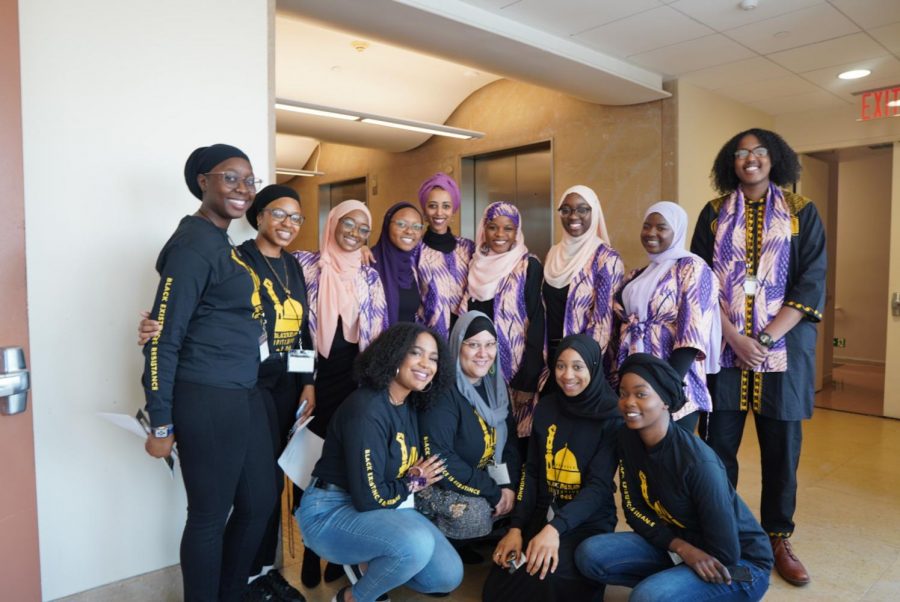As a soulful Quranic recitation rang across the stage at Kimmel’s Rosenthal Pavilion with views of the New York City skyline in the background, Sheika Ieasha Prime, Scholar-in-Residence and Associate Champlain at NYU, took the stage to speak to an eager crowd of around 200.
“Being an ally calls for you to know who I am,” Prime told WSN. “If you are going to be an ally to me, do you know my history? Do you know my story? Do you know my narrative? Before you can show up and say ‘No Muslim ban,’ do you know why I have the right to be here?”
Prime was a keynote speaker at the Second Annual Black Muslim Symposium titled “Out of the Darkness & Into the Light” hosted by the Black Muslim Initiative on Saturday, Feb. 28. The initiative was founded in 2017 by Black Muslim students at NYU to create a safe space for those with intersecting identities. The event is an attempt to reclaim the narrative about the role played by Black Muslims in the development of Islam and America.
The event aimed to illuminate the Black Muslim experience through Quranic recitations, lectures, panels and poetry readings. Organizers hoped the symposium would provide an opportunity to highlight the Black Islamic community that has been traditionally downplayed in the historical teachings of Islam. Prime discussed this historical erasure and its reversion to issues of racism.
“[Racism] says you do not have a place or history here,” Prime said. ”Your presence is something new or borrowed. Africans have been integral to the history of Islam. In fact, much of the Quran takes place in Africa. Because of this erasure, we are now calling upon young women and men to rediscover this history and invite others on this journey.”
Misconceptions about the Black Islamic community often include notions that most Black Muslims are black nationalists, immigrants or came as a result of Malcolm X’s popularity. The voice of indigenous African American Muslims, Prime states, are almost completely erased.
CAS senior Aesteou Hydara, who is the President of the Black Muslim Initiative, also voiced frustrations with these simplifications.
“We often imagine someone Arab or Middle Eastern when we talk about Muslims, but Black Muslims like myself have existed for centuries,” Hydara said. “The large majority of Muslims come from the continent of Africa. The first Muslims here in America were the Africans.”
This lack of representation and mischaracterizations of Africans within the discussion of Islam has been damaging for the identities of many Muslims, including Gallatin sophomore Mariama Stevenson.
“Not only have I experienced discrimination from non-Muslims, but also from the Muslim community too,” Stevenson said. “The original founders of the club were hesitant to come to Islamic spaces and felt as though their Islam was invalidated and had to prove their Islam. BMI gives us a space of our own to recognize that Black culture and Black history is Islam too.”
Hydara said that non-Black and non-Muslim students must take it upon themselves to be better allies.
“There are a lot of people who claim that they are allies to the Muslim community, but many don’t go beyond being a ‘fashionable ally,’” she said. “You have to educate yourself about the people you support. Be uncomfortable. This event is open to all. Come through and educate yourself about people who are different from you, it is the best thing we can do.”
A version of this article appeared in the Monday, March 2, 2020, print edition. Email Mina Mohammadi at [email protected].


























































































































































